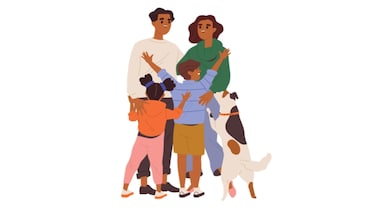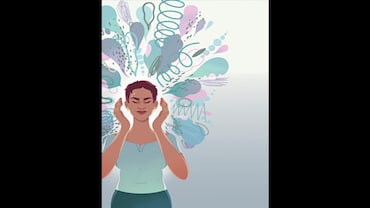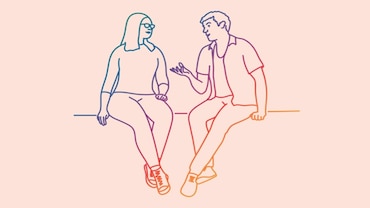- HOME
- /
- Better Living
- /
- Mind
- /
In Praise Of Hitting Repeat
Surprising benefits of ‘Been there, done that, love it’
 Photographs by Joleen Zubek
Photographs by Joleen Zubek
Scrolling through social media feeds can quickly convince you that everyone’s life is more interesting than yours is. During a particularly adventurous week on Instagram some months ago, I saw waterskiing in Maui, hiking in Yosemite and swimming with wild pigs in the Bahamas. Wild pigs!
Impulsively, I started googling flights to new places, imagining adventures. Then I ordered food from the place I eat at every week and ... felt bad about not trying somewhere new.
This ‘fear of missing out’, or FOMO, is rooted in a common tic: Evolutionarily, we’re disposed to find novel experiences more exciting and attention-grabbing than repeat experiences, according to research in the Journal of Experimental Biology. That’s our fight-or-flight psychology at work. Because our brains can’t process all the stimuli around us, we evolved to pay attention to potentially dangerous new things more intently than to familiar things, which we’ve already established won’t hurt us.
What’s more, words such as ‘repetition’ tend to be associated with more negative emotions than words like ‘novelty’, says Michael Norton, PhD, a professor at Harvard Business School.
“Classic research shows that when we think about upcoming experiences, we think about variety,” says Norton. “If I ask you right now to select a yoghurt for each day next week, you’ll pick your favourite flavour—say, blueberry—a few times, but you’ll mix in some strawberry and peach. Because who wants to eat that much blueberry yoghurt? Over the longer term, though, as the original experience fades in time and memory, repetition can become more pleasurable.”
He adds, “We’re simply more boring than we’d like to admit.” Yet because few of us have the time or money to regularly indulge in new experiences, we feel bad about our lives’ monotony.
Recent research about repeat and novel experiences in the Journal of Personality and Social Psychology suggests that we ought to reconsider those negative feelings. Ed O’Brien, PhD, a professor of behavioural science at the University of Chicago, Booth School of Business, launched a series of studies on the topic. Many of us happily listen to our favourite song on repeat, he notes, or rewatch favourite movies and TV shows.
“There’s a general belief that if you want to seem like an interesting, cultured person, the best thing you can do is to showcase that you’re open to new experiences,” he says. “That may be true, but I think we take for granted the other value of really digging deep into one domain.”
To test this hypothesis, O’Brien and his team exposed all participants to the same stimulus, including museum visits, movies and video games. Next, some people were asked to imagine repeating the experience, while others actually did repeat what they had done. The researchers found that across the board, participants said that repeating experiences was often far more enjoyable than they had predicted.
There is joy in repetition partly because every human mind wanders. Consequently, we miss a substantial part of every experience.

“As I’m enjoying a museum or a beer, my mind is also thinking about emails I need to send, phone calls I need to return and the name of my third-grade teacher,” Norton says. “So repeating things can really be seen as another opportunity to actually experience something fully.” This is especially true when the experience is complex, such as going to a museum or watching a movie, leaving ample room for continued discovery.
“Our studies show that people are too quick to assume that they’ve ‘seen all the layers’ even in those cases where they haven’t,” O’Brien says. It’s safe to assume there are more explorable layers in any experience, according to Ellen Langer, PhD, a professor of psychology at Harvard University who is known as the ‘Mother of Mindfulness’. That’s because the process of looking for new insights is fulfilling in and of itself.
“When you’re noticing new things in any experience, neurons are firing, and that’s the way to become engaged,” Langer says. “All you need to do is approach whatever task is at hand by searching for the things that you didn’t see in it the first time around.”
If you’re unsure about how to be more mindful in repeat experiences, Langer offers three tips. “First, recognize that everything is always changing, so the second experience is never exactly the same as the first experience,” she says. “Second, if you’re looking for novelty, that’s itself engaging, and that engagement feels good.” And third, you must realize that events are neither positive nor negative. “It’s the way we understand events that makes them positive or negative,” she says. “So that if we look for ways the experience is rewarding, exciting, interesting, we’re going to find evidence for that. Seek and ye shall find.”
Beyond helping us feel excited at the prospect of strolling around the neighborhood rather than jet-setting to a tropical beach, O’Brien’s research suggests we should think twice about our cultural obsession with doing and accomplishing as much as humanly possible.
“Coffee will never taste as good as it does if you quit it for a month. So it’s true that novelty is fun, but given enough of a break in between, repeat experiences regain that initial buzz,” Norton says. “This is why people do seemingly crazy things, like creating time capsules. If you looked at your third-grade report card every day, you’d get sick of it—but if you bury it in a time capsule and unearth it 20 years later, that’s fascinating.”






